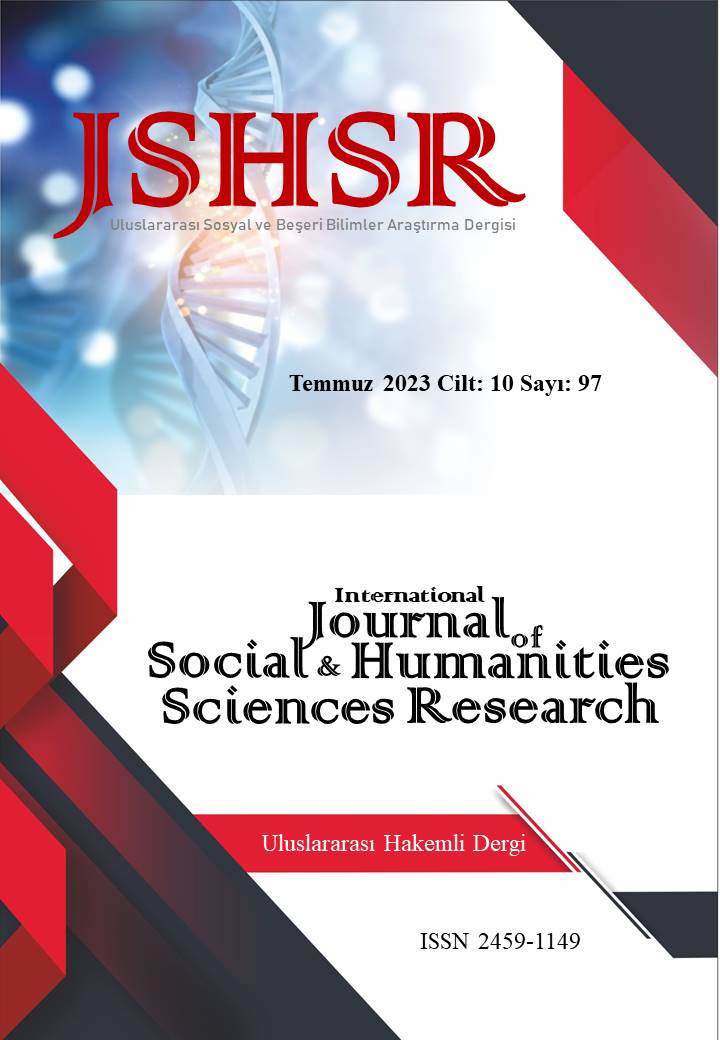Fundamental Elements of Religion in Hacı Bektaş Veli: Faith, Worship and Moral
DOI:
https://doi.org/10.5281/zenodo.8196737Keywords:
Hacı Bektaş Veli, Religion, Worship, MoralAbstract
There are three basic elements of religion: faith, worship, and morality. Faith contains the principles that a believer must accept by believing. Worship is the duty and responsibility of the supreme creator; morality, on the other hand, regulates the principles that a person must observe in his actions towards God, himself, and other beings. There is a necessary relationship between faith, worship, and morality. When this relationship is established, the people and society that religion is trying to create are obtained. Efforts have been made to establish this unity in the social institutions and organizations that have emerged among Muslims. In Bektashism, which is one of the common sects among the Turks, it is seen that faith, worship, and morality are given great importance. Haci Bektas Veli’s teaching of the four-way forty position gathers these three principles together in the most perfect way. The first of these offices is faith. A person who believes; He accepted all six pillars of faith. A person who accepts these principles must be moral. That is because believing in books, prophets, angels and the belief of the afterlife requires turning away from all kinds of bad words, thoughts, and deeds.
In this study, the place of faith, worship, and morality in the thought system of Haci Bektas Veli, the founder of Bektashism, and the relationship between them will be discussed.
References
Ahmed b. Hanbel. (1992). Müsned. Çağrı Yayınları.
Arslan, H. (2010, Mayıs 7-9). Hacı Bektaş Veli’de İman-Ahlak İlişkisi. I. Uluslararası Hacı Bektaş Veli Sempozyumu, Çorum, 1, 63-80.
Gündoğar, H. (2008). Alevî-Bektaşî Kaynaklarında Tanrı Tasavvuru. Dicle Üniversitesi İlahiyat Fakültesi Dergisi 10(1), 39-57.
Hacı Bektaş Veli. (2009). Makâlât-ı Gaybiyye ve Kelimât-ı Ayniyye. G. Aytaş - H. Yılmaz (Haz.). Gazi Üniversitesi Türk Kültürü ve Hacı Bektaş Veli Araştırma Merkezi Yayınları.
Hacı Bektaş Veli. (2010a). Besmele Tefsiri. Hamiye Duran (Haz.), Hacı Bektaş Veli Külliyatı içinde, (203-327). Gazi Üniversitesi Türk Kültürü ve Hacı Bektaş Veli Araştırma Merkezi Yayınları.
Hacı Bektaş Veli. (2010b). Fatiha Süresi Tefsiri. B. Y. Altınok (Haz.), Hacı Bektaş Veli Külliyatı içinde, (169-201). Gazi Üniversitesi Türk Kültürü ve Hacı Bektaş Veli Araştırma Merkezi Yayınları.
Hacı Bektaş Veli. (2010c). Fevâid. B. Y. Altınok (Haz.), Hacı Bektaş Veli Külliyatı içinde, (19-167). Gazi Üniversitesi Türk Kültürü ve Hacı Bektaş Veli Araştırma Merkezi Yayınları.
Hacı Bektaş Veli. (2010d). Hünkar Hacı Bektaş Veli Velayetnamesi. H. Duran – D. Gümüşoğlu, (Haz.). Gazi Üniversitesi Türk Kültürü ve Hacı Bektaş Veli Araştırma Merkezi Yayınları.
Hacı Bektaş Veli. (2010e). Makâlât. Ö. Özkan – M. Bankır (Haz.), Hacı Bektaş Veli Külliyatı içinde, (473-767). Gazi Üniversitesi Türk Kültürü ve Hacı Bektaş Veli Araştırma Merkezi Yayınları.
Mâtürîdî, Ebû Mansûr (2018). Te’vilâtü’l-Kur’ân Tercümesi 8. Yunus Vehbi Yavuz (çev.). Ensar Neşriyat.
Üzüm, İ. (1998, Ekim 22-24). “Vilâyetname-i Hacı Bektaş-ı Veli’ye Göre İslami İnanç ve İbadetler”, I. Türk Kültürü ve Hacı Bektaş Veli Sempozyumu. Gazi Üniversitesi Türk Kültürü ve Hacı Bektaş Veli Araştırma Merkezi, 385-390.
Yeşilyurt, T. (2003). Alevi-Bektaşi Düşüncesinde İman. Fırat Üniversitesi İlahiyat Fakültesi Dergisi, 8, 17-26.
Yılmaz, H. K. (2004). Ana Hatlarıyla Tasavvuf ve Tarikatlar. Ensar Neşriyat.
Downloads
Published
How to Cite
Issue
Section
License
Copyright (c) 2023 INTERNATIONAL JOURNAL OF SOCIAL HUMANITIES SCIENCES RESEARCH

This work is licensed under a Creative Commons Attribution 4.0 International License.


